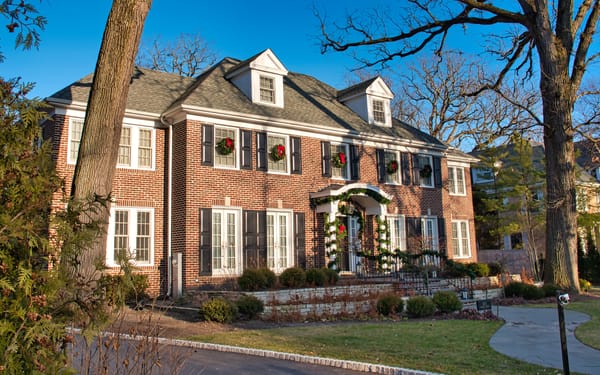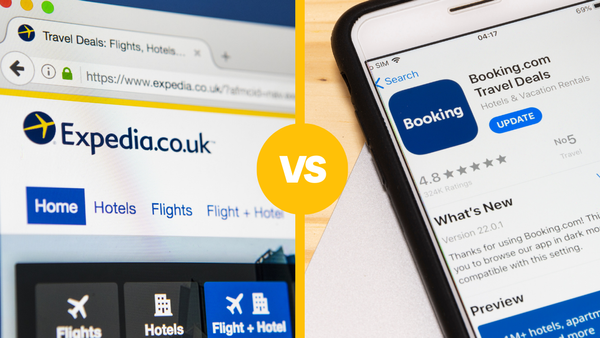Vrbo Deposit Refund: Policy and Process Explained

Similarly to other mainstream vacation rental platforms like Airbnb, Vrbo (short for Vacation Rental By Owner) also includes a damage deposit feature. So, if security is the reason why you have not listed your property on Vrbo yet, you can rest assured knowing that the platform has put in place measures to keep your property protected.
What’s more, the company also gives hosts a few options. Whether you prefer to charge a refundable amount or let your guests buy an insurance package for less, Vrbo lets you cater to both needs.
Continue reading to find answers to a few questions commonly asked by hosts and guests about Vrbo damage deposits, an upfront refundable damage deposit, payment and refund totals and more.

What Is a Vrbo Damage Deposit?
A Vrbo damage deposit is used to cover property damage that might have happened during a guest’s stay. Depending on the option that a rental owner has selected, the amount charged will be refunded to the guest afterward if there was no damage to the property.
The damage deposit refund can be set to be automatically refunded by your bank or payment provider.
How Does a Damage Deposit Work For Vrbo Vacation Rentals?
Vrbo offers different refund policies that a host can choose from. The specific policy that you have chosen will determine how you will be reimbursed in the unfortunate event of damage. Here are the damage deposit options:
1. You could charge a refundable damage deposit
With a damage deposit that is refundable, you can decide on the amount that guests will be charged when they book a property. The exact fee will be listed along with other extra fees, like service fees and cleaning fees, when they are shown a breakdown of the booking total. This amount will then need to be paid upfront and will be held by Vrbo for the duration of the guest’s stay.
Hosts will have 14 days after checkout to submit a damage claim, if a property inspection revealed that there was, in fact, damage. If no damage claim gets filed, the damage deposit amount will be returned automatically to the guest.

In the event that your property inspection reveals that the property or its furniture was damaged, you simply send a claim and within seven days Vrbo will process the payment. You will receive the amount that you have claimed and the rest will be returned to the guest.
All in all, it is a very safe approach. However, it can discourage guests from booking your property as they will end up paying more upfront.
2. Guests could keep a card on file
Keeping a card on file is currently Vrbo’s default damage deposit policy. With this approach, Vrbo will save a guest’s credit card details on their system. Hosts then have a maximum of 14 days after a guest has checked out to file a damage claim if needed.
If your property inspection reveals damage and you submit a claim, Vrbo will send the guest an email to inform them about the claim. This notification email will include both the amount that you have requested as well as a description of the damage.
According to the platform, they will even cover the damage claim, on the condition that it is valid, when the guest’s credit card has expired or the limit has been exceeded. So, it is a pretty safe option to select.
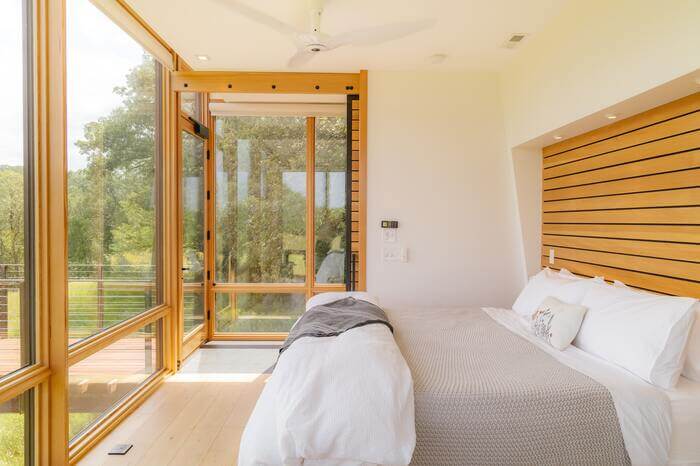
3. Guests could pay for property damage protection
Another option is that you can ask guests to purchase property damage protection for their stay. This approach works similarly to charging a refundable damage deposit, but the amount is usually less.
Also, unlike a refundable damage deposit, there are no damage protection insurance refunds. In other words, it almost becomes like another type of service fee where the amount won’t be returned to the guest’s bank account after their stay.
When going this route, your guests will see a fee for property damage protection that gets listed when they are given a price breakdown before they pay online. Vrbo will give hosts a number of packages that they can select.
So, while you will be able to pick the amount, you are limited to the coverage amounts listed.
Should I Charge a Refundable Damage Deposit?
The reality for a property owner is that there is always a chance that damage can occur, even when you have put in place measures to screen every single guest and avoid getting scammed when renting out on Vrbo. For this reason, it is strongly recommended that you charge a refundable damage deposit to ensure you have indeed covered all your bases.
If you are not entirely convinced yet, here are three main reasons to convince you:
1. Provides an extra layer of property damage protection
No insurance policy is perfect. Using the Vrbo damage deposit refund option just gives you an additional avenue against potential property damage that you can use.
2. Holds guests accountable
If guests know that there will be financial consequences to ignoring your house rules, they will be much more inclined to take the time and read the rental agreement. Otherwise, you will find that guests might just claim ignorance and offer an apology when asked about damage.
3. Guests don’t feel cheated out of their money
If you choose not to charge an upfront deposit, you will most likely increase your nightly rate so that you can use your income to pay for potential damage. With this approach, you run the risk of offering less value for money which can make guests feel as if they were cheated out of their money.
Also, as Vrbo will keep the refundable deposit and only pay it out to hosts in the event of a successful claim, guests feel more comfortable.

How Much Should I Charge for a Refundable Damage Deposit?
Generally, the refundable damage deposit amount can vary between $100 and a few thousand dollars. That being said, the general rule of thumb suggests that hosts should not charge more than 20% of a booking’s total cost. When following this approach, the average amount charged ranges between $100 and $500 per reservation.
In short, it should be enough to give guests a reason to treat your property with respect without discouraging them from booking your place. So, let your property type guide you. This means that for a one-bedroom apartment, you will typically charge less.
How Can I Submit a Claim on the Vrbo Vacation Rental Platform In Case of Damage?
First and foremost, you will have to make sure that you submit any claim within 14 days after your guest has checked out. If you or your property manager has inspected the property after the guest has checked out and found that it will be necessary to file a claim, here are the steps that you will need to complete:
- * Log in to your Vrbo account.
- * If you have more than one listing, you will need to go to the Property Details page for which you are filing this claim.
- * Go to your Inbox.
- * Choose the name of the guest.
- * Select Damage protection.
- * Select Report damage.
- * Type in the amount that you want to claim. While hosts can use their own discretion, it may not be more than the total amount that the guest was charged for the refundable damage deposit upfront.
- * You will now be asked to describe the damage for which you are claiming. This damage description will also be shared with the particular guest and so it needs to be an accurate and detailed summary written in a professional tone of voice.
- * Choose Confirm.
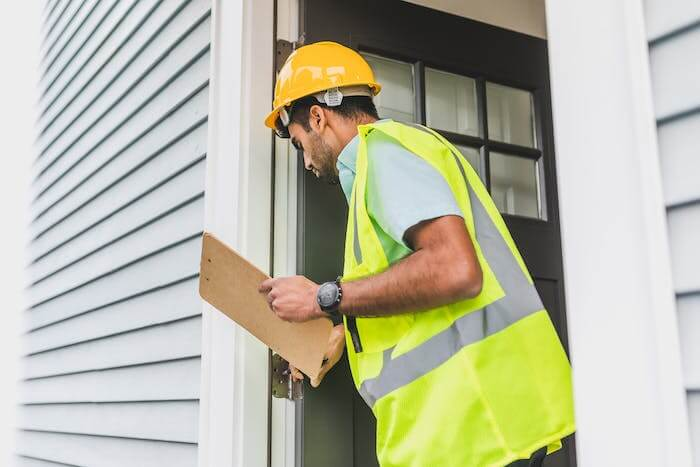
How Does Vrbo Process a Deposit Refund?
Vrbo uses an automatic refund process. This means that after a guest’s stay has ended and the host did not file any damage claims, the entire amount will be returned to the guest automatically.
In case a host has submitted a claim, the guest will receive an email notification that includes a message from the host, a description of the damage that they are filing for, and how much they have claimed.
If a guest disagrees with the charge, they can contact Vrbo to file a dispute. In this case, the OTA will then request extra documents from the guest and host to verify the claim.
If you list your place on multiple vacation rental platforms, which is the recommended approach, or if you have a number of properties, it can be difficult to manage security deposits. This is just one of the reasons why it is such a good idea to invest in a vacation rental software solution.
Thankfully, day-to-day management of your business can be simplified with the help of automation. Vacation rental software, like iGMS, can automate a bunch of your routine hosting tasks, allowing you to focus on growth and scaling, by:
- Processing payments securely via integration with Stripe.
- Creating essential reports on your business results within minutes
- Adjusting your pricing in a smart way through integrations with PriceLabs, DPGO, and Wheelhouse
- Organizing all guest messages into a single feed in a unified inbox.
- Creating a professional direct booking website in minutes to avoid Airbnb service fees
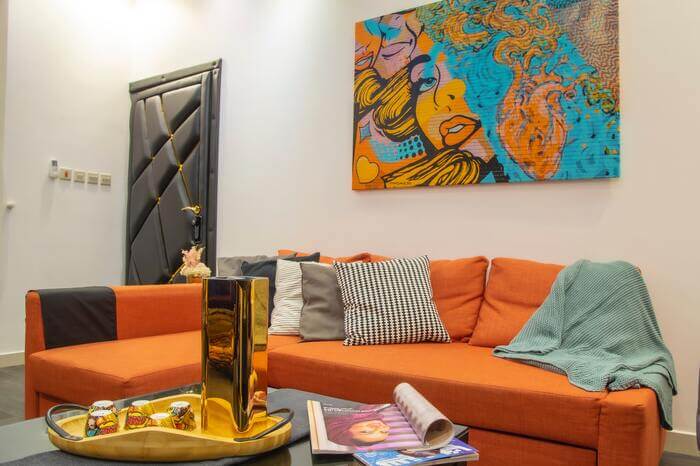
How Long Does It Take for Guests to Receive Their Deposit Refund?
The time it takes to process damage deposit refunds will depend on the account settings of the host, but within 14 days the guest will have received their deposit refund. As long as the host did not report any property damage, Vrbo will automatically refund the guest. So, there is no action needed on the host’s side.
The payment will be returned in the same form that was used to pay the deposit. However, the amount might be different if different currencies were used for the booking. This is to account for possible currency exchange rates and bank-issued exchange fees charged by the financial institution.
Also, the payment provider or bank might also take between five and seven working days to release the funds. So, in the worst-case scenario, it can take up to 21 days for Vrbo guests to receive their deposit refund.

Should Hosts Get Additional Vacation Rental Insurance?
In addition to collecting a security deposit, it is best practice for a property owner to get extra vacation rental insurance.
While a Vrbo deposit refund can help to protect hosts, it still does not offer complete protection and Vrbo’s liability insurance can be used for traveler injury and damage to another party’s property only.
Vrbo officially endorses Proper Insurance as their preferred comprehensive home insurance provider in the United States. Though, there are a number of other vacation rental insurance providers that hosts can also check out to ensure that they have complete coverage.
About the Author
Callan Riddles is the Content and Social Media Specialist at iGMS. Callan has a passion for finding new ways to help vacation rental businesses thrive. In her free time, she loves to travel, read, and experience all the new things that life has to offer.




